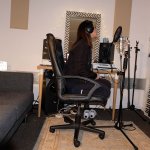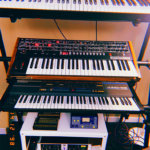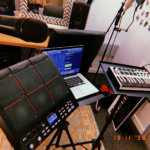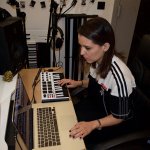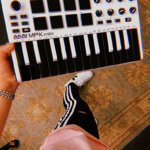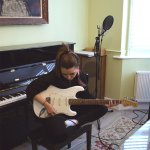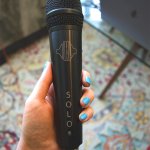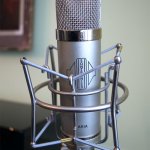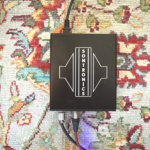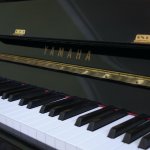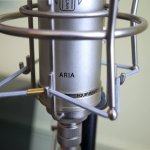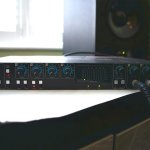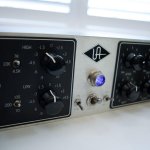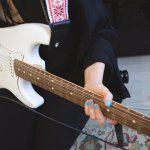Show Off Your Studio: Raphaella on bringing her Shoreditch studio home and producing with WhatsApp
The 29-year-old alt-pop artist shares snaps of her two studios and the stories behind her collaborations.
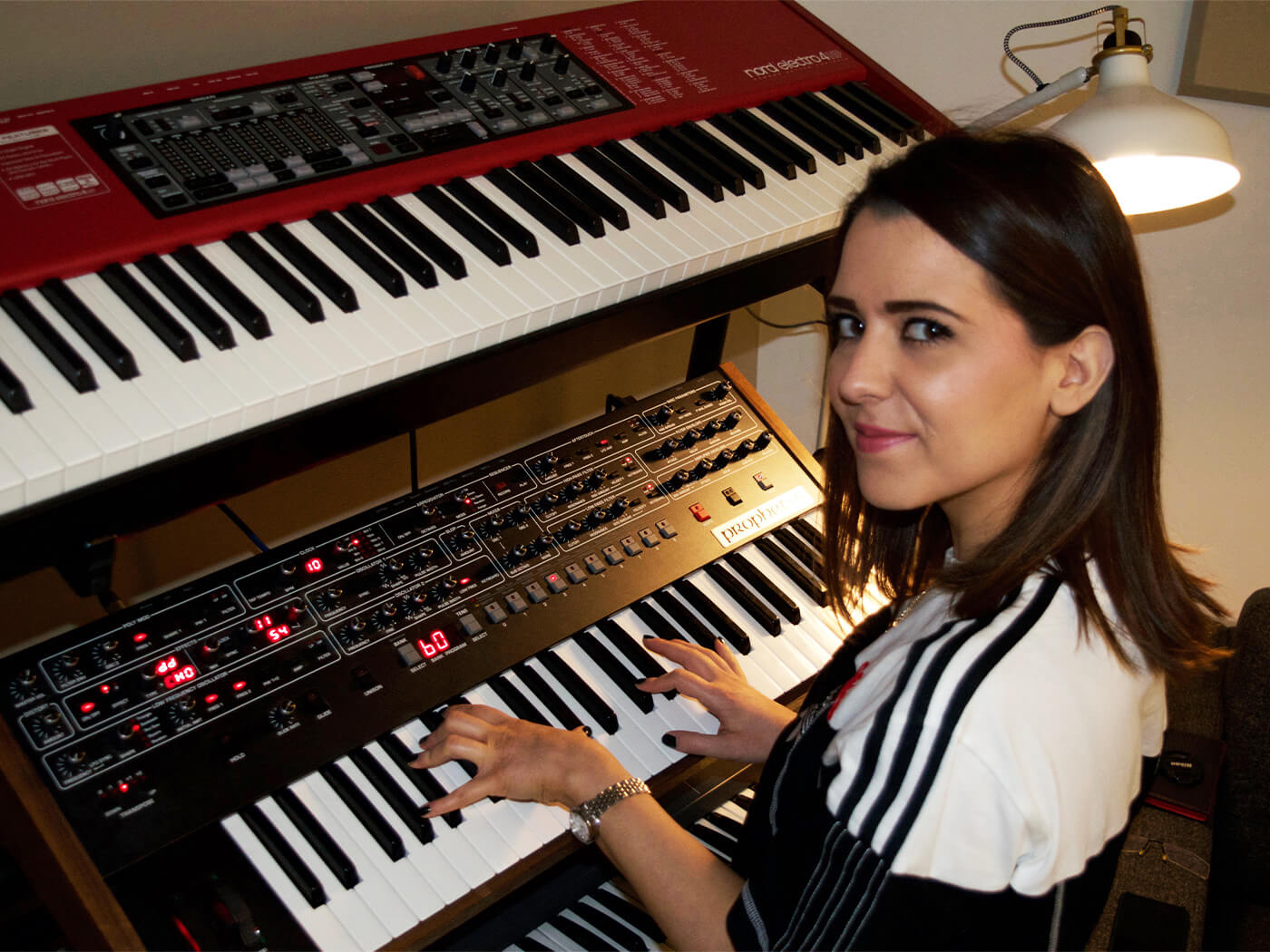
Studio owner Raphaella
Contact masoud@koochulu.co.uk
Instagram
Key kit
- Sontronics Aria
- Sequential Prophet 6
- Universal Audio 6176 limiter & preamp
- Adam Audio A7X monitors
- Yamaha upright piano
- Fender Stratocaster
Hey Raphaella! You’ve sent us a collection of photos from two studios – your Shoreditch studio and Lockdown Studio, can you tell us a bit about each?
I moved into my Shoreditch studio a little over two years ago now, and it’s part of a complex of studios in East London – before that I had a home studio in North London. Making the move was definitely the right decision for me – the creative buzz of Shoreditch and a living, breathing studio complex is so inspiring to me. We’re all like a family there and pop in and out of each other’s rooms for a chat whenever we go a bit stir crazy, share equipment and just lend a fresh ear to a mix. Unfortunately because of the COVID-19 lockdown, the whole complex has been closed for now and we all had to take home the gear we needed to carry on working. I thought coming back home would be easier than it has been, but it’s been quite tough. It’s lovely because I have a big, bright view and my Yamaha piano, but I really miss that more community aspect of a studio complex and soundproofing in a dining room has been a challenge!
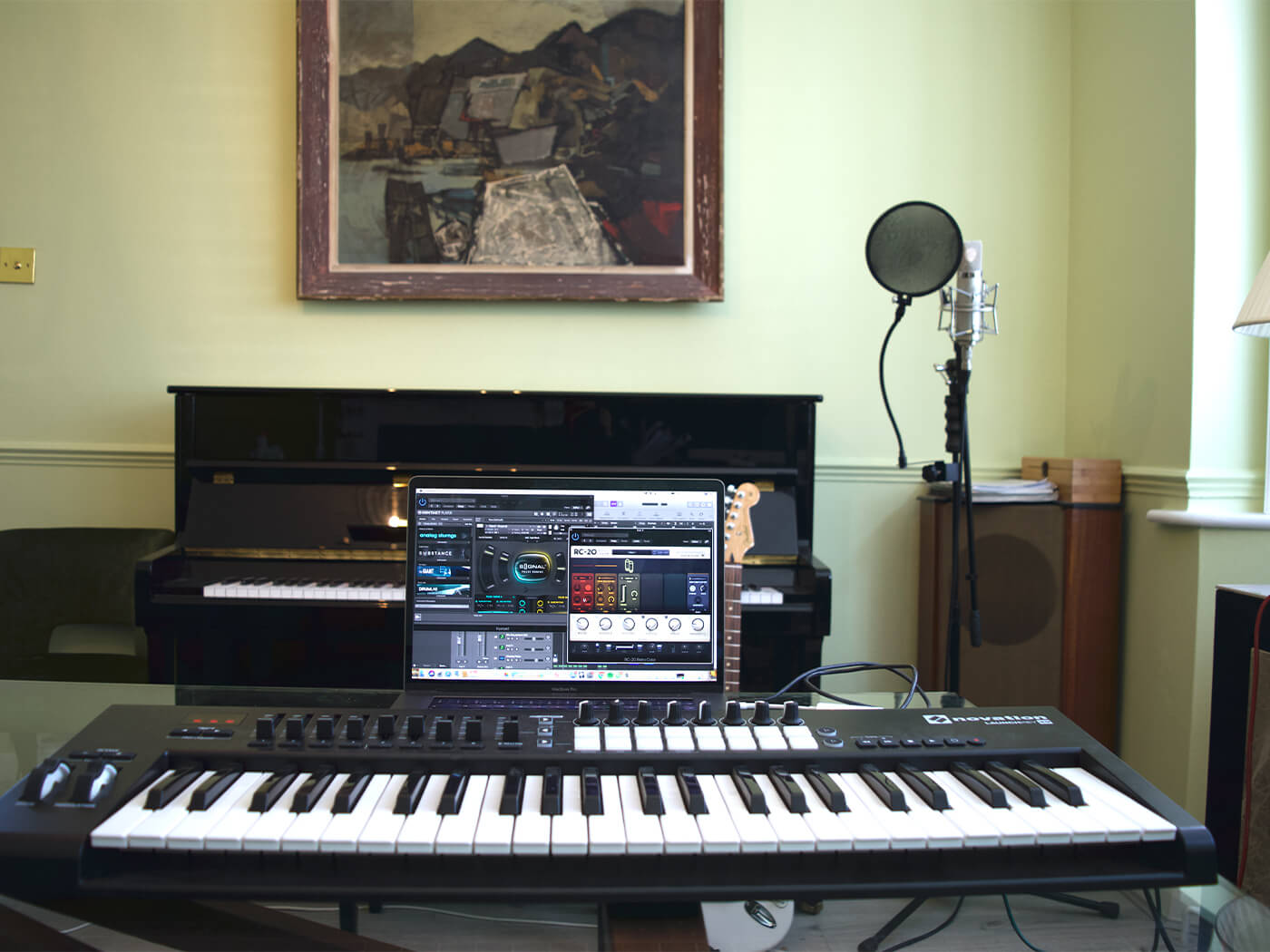
How have you translated your workflow from Shoreditch to home?
I was lucky because I’d taken my main pieces of gear out of my studio about a week before lockdown because I was vocal-producing Little Mix’s next album and we’d started work at Metropolis. It was going to be an intensive few weeks, so I needed a set up to come home to every night to work, monitor and reference record with. Then everything changed and the whole world pretty much came to a standstill. Because it was all very sudden, I wasn’t able to get out my Prophet 6 or my Juno 106 which I still mourn over! So, I’m putting ideas down with the awesome Arturia software plugins at the moment. I had to make a few quick purchases because I managed to forget my keyboard pedal and an extra jack to jack cable! Sometimes I feel like I accidentally packed for the apocalypse [laughs].
Which DAW do you use?
My main DAW is Logic Pro X, it’s my first language, so to speak. I started using it when I was 15 and I continued to use it throughout my music degree. I really love how versatile Logic is – it’s brilliant for vocals and has great dexterity for vocal comping, and I find it equally great for software synths. I can quickly get a great sounding mix in Logic, and often will finish projects in Logic even if I start elsewhere. Ableton Live is the other DAW I use because it’s just so brilliant live. It also has a playful, fun user feel to it, so often when I feel stagnant and uninspired I open Live and turn on the Push 2 and it feels like I’m playing an arcade game instead of making music.
What is your favourite piece of gear?
That’s like asking what my favourite chocolate bar is! I often call my synths my children I’m yet to have, so I’ll have to go with my firstborn- the Prophet 6. It’s just so versatile. I could be on a desert island with just my Prophet, and I wouldn’t ever get bored. There are endless patches to create and find – you could create a great house bass with it one moment, the next a super experimental synth texture, the next lush synth pads. I love that you can save your own patches to it, so it really feels like your own instrument.
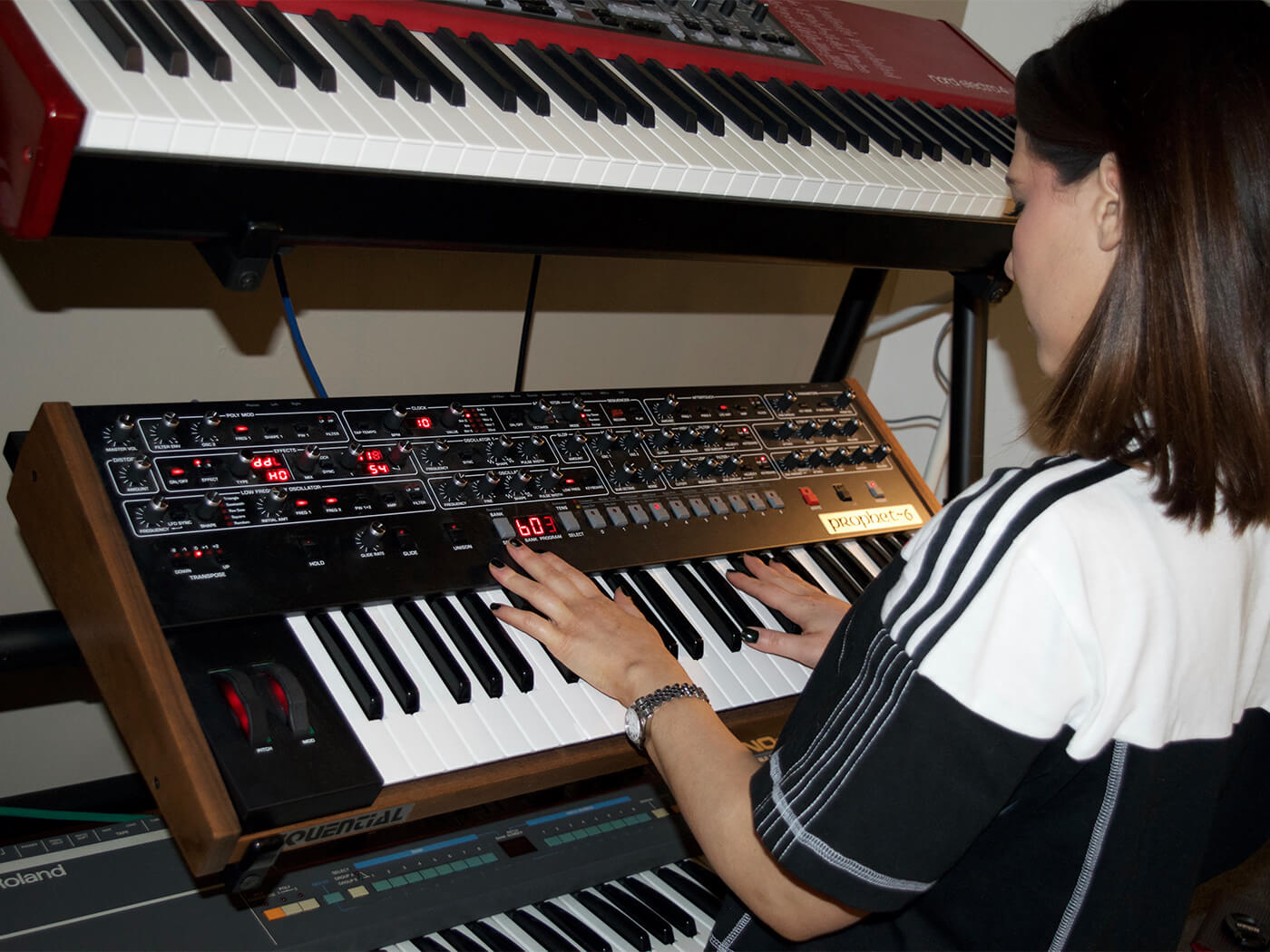
Can you tell us about some of your favourite plug-ins?
I absolutely adore Soundtoys. I really try to use plug-ins in the most creative way that I can- often applying effects unconventionally on some instruments. I feel like Soundtoys has the most creative scope for that. Sometimes for vocals I literally blindly pick a plug-in to load into its effect rack and go from there. My other favourite plug-in is FabFilter Q3. For mixing it’s an absolute must for me – it gives you such an insightful view into your problem areas, with the ability to audition frequencies in isolation. Arcade is my other all-time favourite. It’s one of those plug-ins that inspires me just by opening it and is super cost-effective compared to other plug-in synths with half the patches.
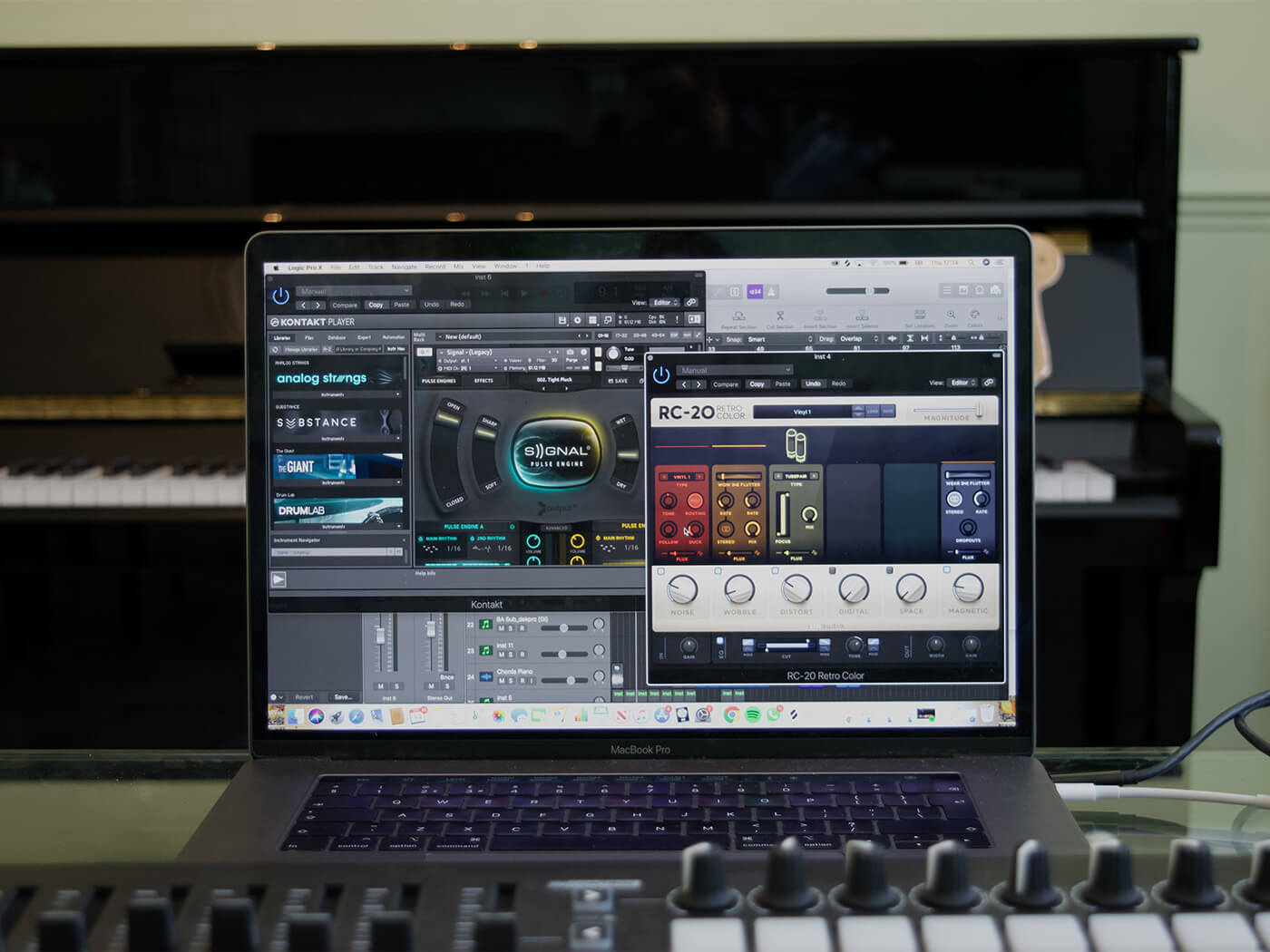
The vocals in your productions sound deeply layered, chopped and rife with pitch modulation, what gear/software is allowing you to achieve this?
With Alright I actually started that song with the vocoder stack of vocals in the intro which I created using the TC Helicon VoiceLive. It was the first time I’d used it and was so much fun. I put myself on loop and kept layering up different parts as I improvised – unstacked them, chopped up parts I liked and panned them out left and right around the main vocoder harmony stack. Usually, I like to use a blend of plug-ins on all of my vocals. Even with the lead sometimes I place a pitched vocal so quietly behind it’s almost imperceptible but adds texture. For that, Soundtoys plug-ins are mostly my go-to. Another thing I like to do is take a single harmony line which you’d normally stack in fours or a stereo double. I use only one but run it through a Chorus to thicken and widen it up. That way I find it has a really interesting and great presence in the mix- better than a traditional stereo pair, but also still sits well. After about three different harmony lines using that technique, I find I have a great thick harmony stack with bite, acting as a bed for my lead.
Your latest release, Real, involved WhatsApp in the production process. Was this due to social distancing measures or is it a valuable tool in your productions regardless?
It was actually because my laptop got stolen the day I finished my EP and the last two songs I’d completed, Real and half of Alright were completely lost. I’d WhatsApp’d the bounces of the finished tracks to my manager just before I left the studio, so they were the only remnants left of the production and songs. I ended up importing the WhatsApp audio into the Logic project and using it as a reference to go about re-creating the tracks and even chopped into some of the audio and re-sampled sections. For example, the reversed stutter vocal from the intro of Real is sampled from the original Whatsapp bounce because I knew it was impossible to recreate, but I loved it so much. As much as I love WhatsApp, I’ll hopefully never have to use it for production again!
What was the process of creating Lockdown Music with Henri PFR & R.O?
I’ve known Henri for about four years now, he’s a really great Belgian DJ. He had this great idea to create a track by collecting videos of people around the world making sound while in lockdown. He called me and explained the project and asked if I would write the song and be involved and of course I said yes. Strangely, Henri and I always seem to work remotely, we’ve never written in the same room before! So he and R.O were working on the track together in France and Belgium respectively and I was writing and vocal producing the topline in London and we’d all just fly files and stems over to each other in our WhatsApp chat (Whatsapp makes a return!). We’d check final mixes and group call each other till we got it to a place we were all happy with, then finally shot the video in our own homes with cameo appearances from family members and pets, collated alongside hundreds of other videos of people also dancing around the world. We just wanted to make something that made everyone feel a little less lonely in isolation.
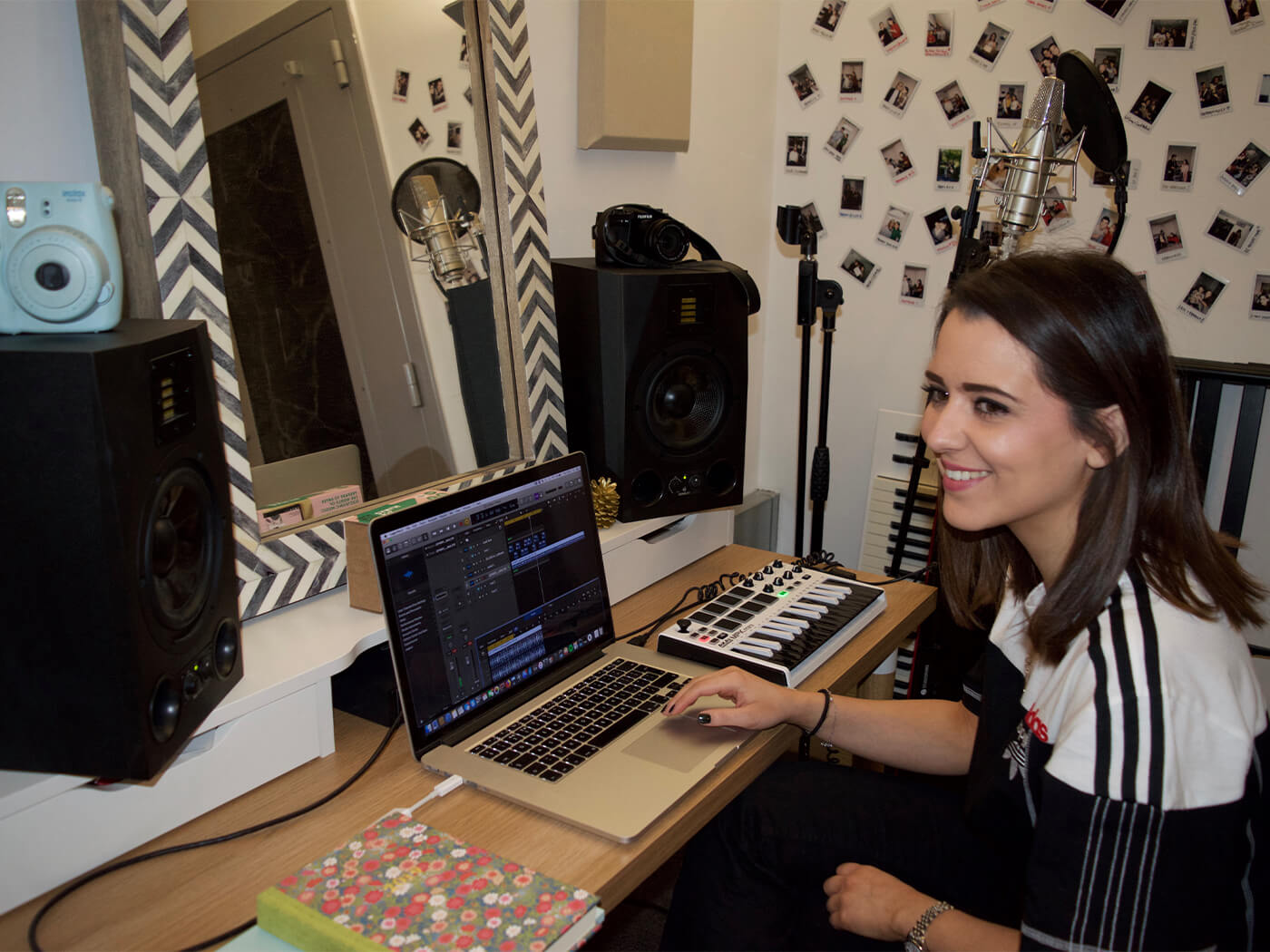
How much time do you spend in your studio per week?
It’s my full-time job so I try to treat it as such, but with all things creative it’s always hard separating work time with downtime so I aim for around 45 hours a week, but it often ends up being much more.
What atmosphere do you try and create in the studio?
Being half Persian I’ve always grown up with Persian carpets surrounding me, so for me, that’s like the heart of my studio. I like to create a homely, cosy atmosphere with lots of fun bits of gear dotted around so it feels like you could just grab something and instantly start a vibe without it feeling clinical or pressured. I have an illegal amount of fairy lights at any given moment and I also have a polaroid wall with everyone I’ve ever had a session with which makes it feel more personal and is always a conversation starter with whoever I’m having a session with.
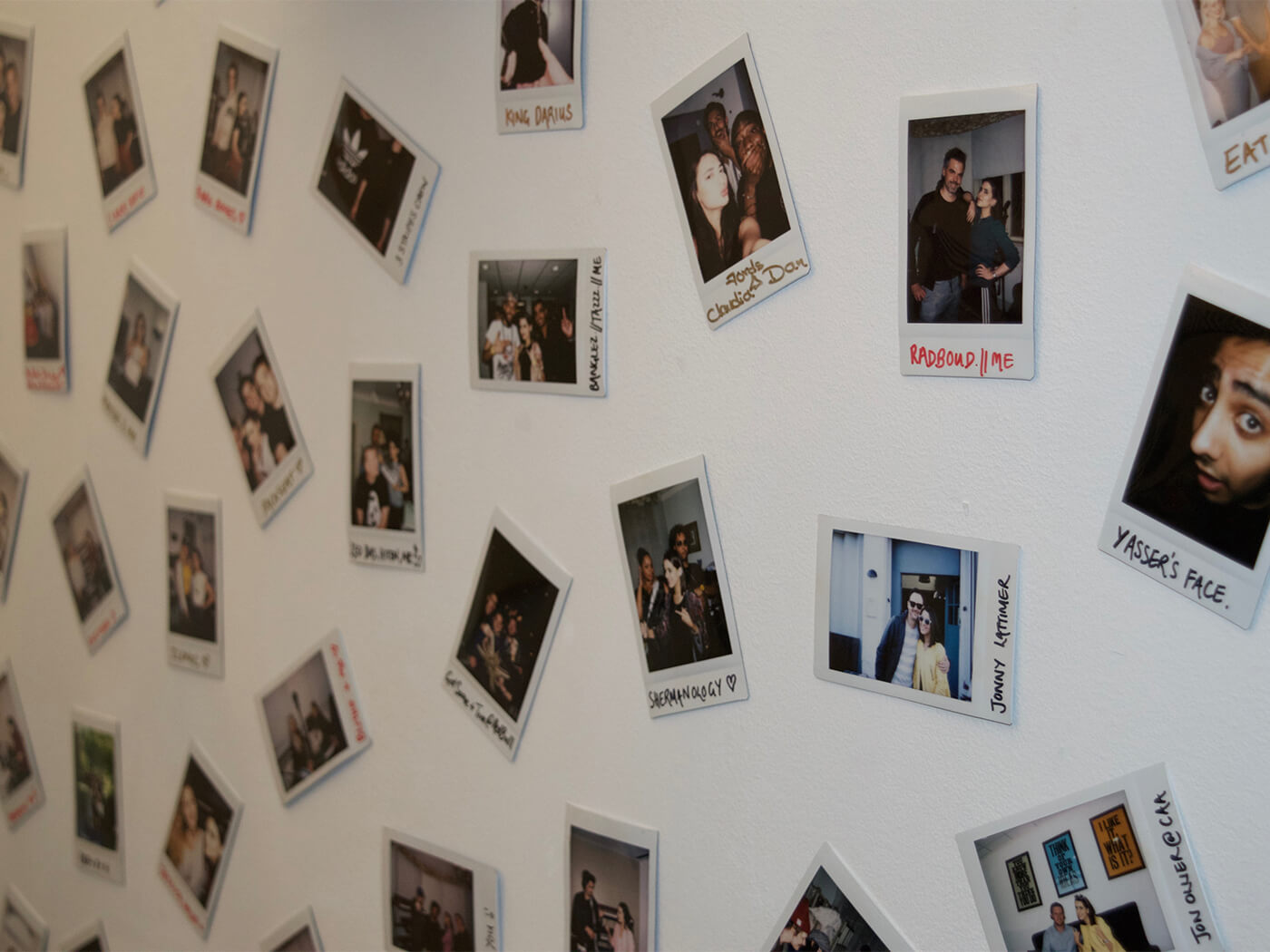
What is next on your shopping list studio-wise?
I think I’d have to say the Moog Matriarch. I really want to get more into modular synths and that’s semi-modular so I think it’s the perfect half-way house to play around with as well as it sounding absolutely beautiful. I have a few Korg Volcas but want to explore that world so much more.
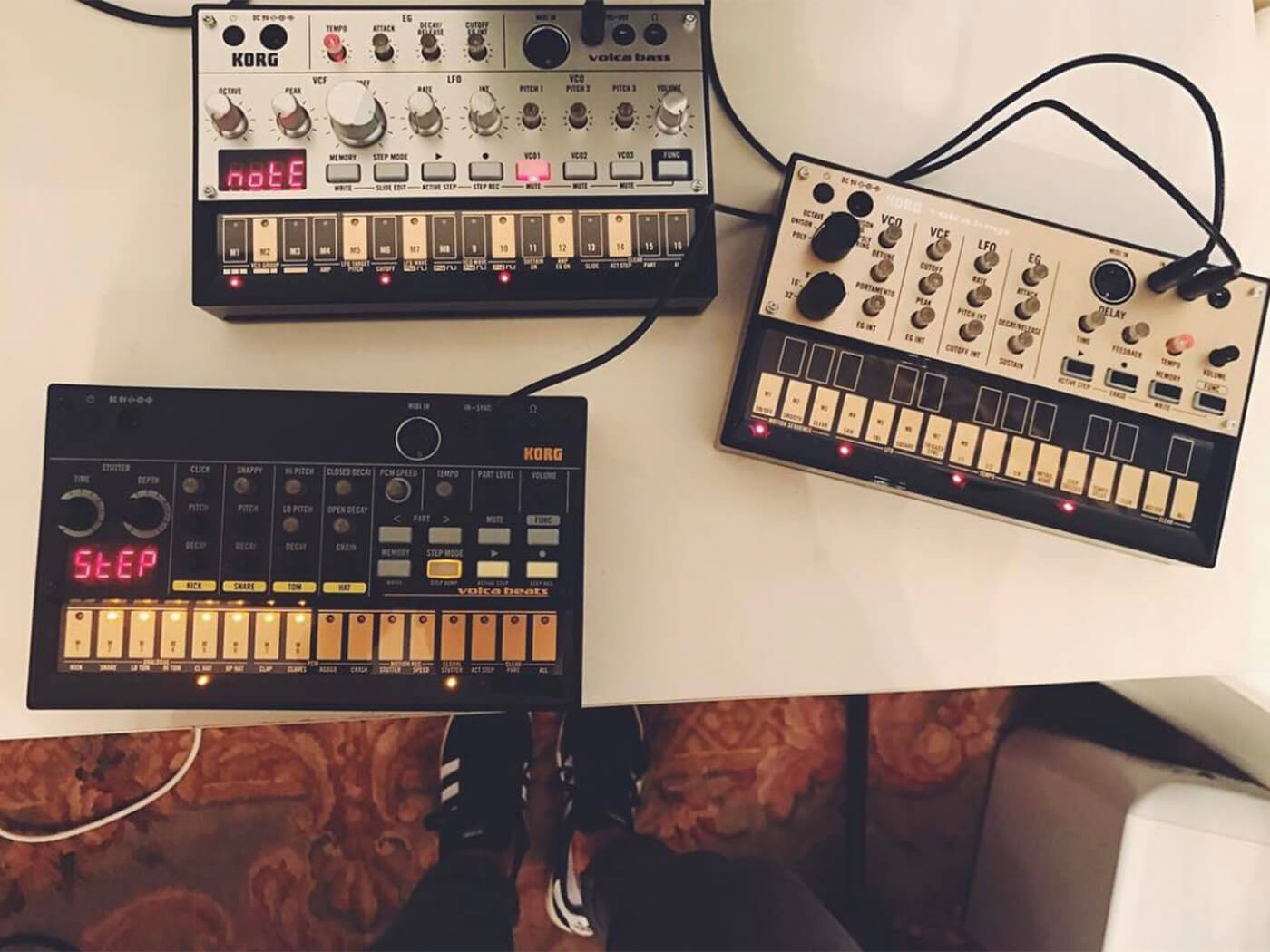
Do you have any frustrations with your current set-up?
With my current lockdown set up, absolutely. It’s acoustically difficult as it’s obviously not designed to be a studio and it’s quite a large untreated room, but I am finding the fun in making new things work instead. Also, not having the Prophet has been quite difficult in terms of creative flow as it was my go-to and I trusted it to give me the results I needed quickly. But instead, I’ve been exploring Output’s synths much more which are absolutely brilliant and also recording live piano which is a real joy.
What is your dream piece of gear?
I would absolutely love to own a Wurlitzer. They have such an iconic sound and every time I sit behind one I’m so inspired because they remind me of the past.
What is your top piece of production advice?
Remember there are no rules. Sometimes the most amazing things come from experimenting or from doing something that isn’t ‘technically’ right. Think of production as another instrument itself, that way you can really explore and express and give yourself a voice.
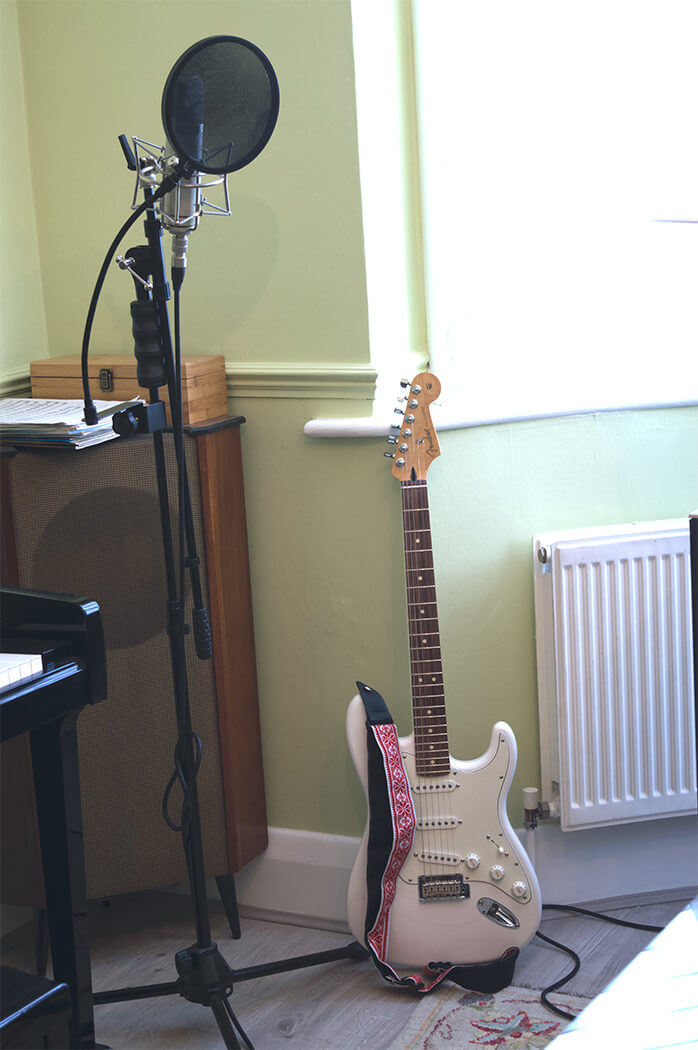
Is there anything invaluable you’ve learned working with the likes of Rudimental, MK, Little Mix and Martin Garrix?
Simplicity is King/Queen. Songwriting and production are incredibly personal and as a songwriter when I was younger, I tended to lose myself in metaphors and poetry or technically complicated chord progressions. But the thing I learnt from working with these artists is that music that truly translates and sticks is emotional, and you can’t feel emotion if it’s too complicated to understand. MK will happily use three or four chords from beginning to end and when I work with Rudimental, we always go straight to the hook and the lyric of the hook.
What is the one piece of advice you would give someone starting out building a studio?
Don’t spend a shed load of money right off the bat. I slowly built up my studio over a number of years after using and testing so many pieces of gear and equipment in other studios until I knew what I really loved and needed for my personal needs. Start with a pair of good flat monitors – that was my first mistake, my first monitors were awful and everything else suffered. No matter how good your gear is, if you can’t hear it properly you’re working blind.
Lastly, what’s the first thing you’ll be doing once lockdown is over?
Hopefully, travelling. I don’t think I realised how lucky I was being able to travel so much for my job for shows or writing camps. Now I only get to travel from my bedroom to my kitchen!
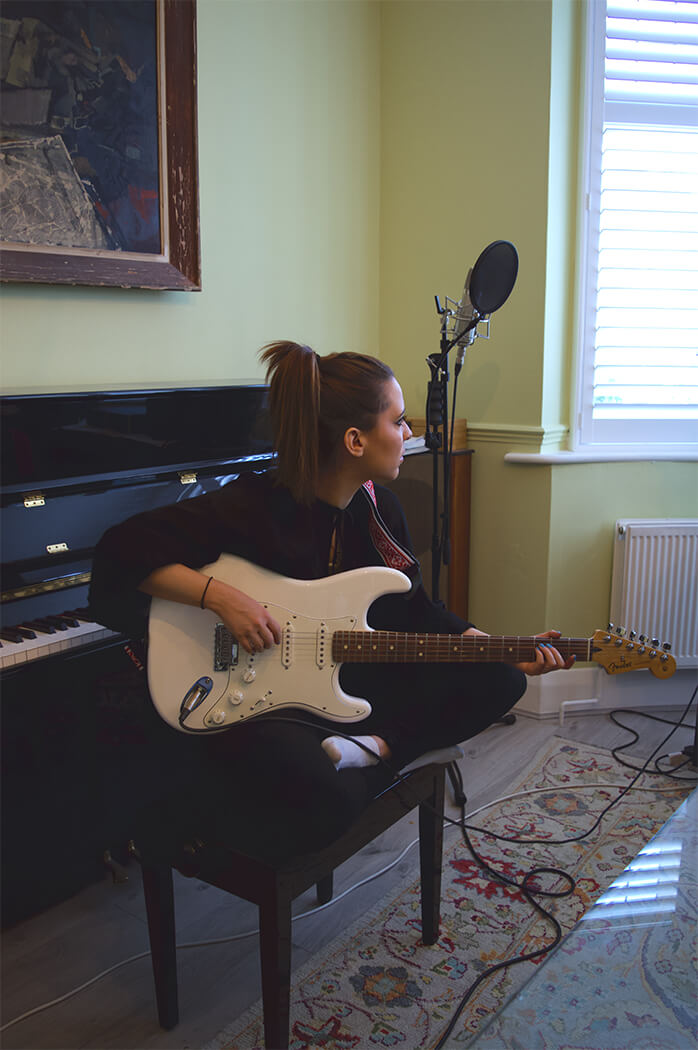
Do you use a studio that we all need to see? Send photos to editors@musictech.net or get in touch via the MusicTech Facebook page and your gear could be featured next.
For more studio posts, check out our Studio page.
